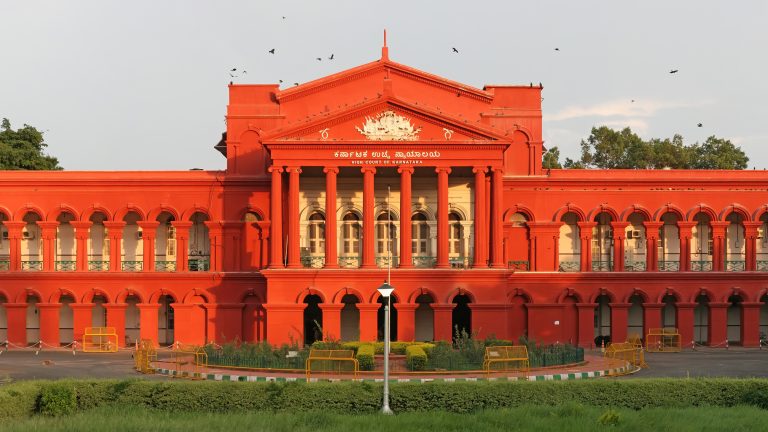The Karnataka High Court held that failure to conduct inquiry before terminating a temporary employee will violate the principles of natural justice.
The Court held thus in a writ petition preferred by an employee against an order by which her services were terminated and she had sought a writ of mandamus to reinstate her into service as an Accountant in the District Town Municipal Cell, Bagalkot.
A Single Bench of Justice M. Nagaprasanna observed, “The petitioner was appointed as Accountant in the year 2008 albeit, on a temporary basis. She had completed more than 10 years of service at the time when she was issued a show cause notice. Therefore, though she was not a permanent employee, she had acquired a quasi permanent status and termination of her service is on the score that she has been unauthorisedly absent and such absence has hindered functioning of the Council. Therefore, it is on allegations. If termination is on allegations, even to a temporary employee, an inquiry in the least will have to be conducted, failure of which, would become violative of the principles of natural justice, as the employer is terminating an employee on account of allegations without affording a reasonable opportunity of hearing.”
Advocate Vinay S. Koujalagi appeared for the petitioner while HCGP V.S. Kalasurmath and Advocate Prakash Hosamane appeared for the respondents.
Also read: 30% employees in UK don’t want to come back to the office because of Boss: Survey
Factual Background –
The petitioner was appointed as an Accountant on a temporary basis in the Town Municipal Cell, Bagalkot in terms of an appointment order issued by the Town Municipality Council and she, without any break in service, continued work with the Deputy Commissioner of the Cell. While so functioning, she along with all other similarly situated employees approached the High Court seeking regularization of her services and the writ petitions were disposed of directing the authorities to consider the case and till such consideration, services should not be disturbed.
After the aforesaid direction, a show cause notice was issued to the petitioner on the score that she remained unauthorisedly absent and that her absence had caused a block to various projects initiated by the Council. On receipt of such a notice, she submitted her reply. Notwithstanding detailed reply, she was terminated from service without holding any inquiry whatsoever and hence, she filed a petition. The said petition was allowed directing reinstatement of her with 50% of back-wages and such an order was called in question by the State via an appeal. The Division Bench allowed the same and remitted the matter back to the Single Judge for re-consideration of rival claims afresh. Hence, the petition was to be reconsidered for the second time after close to 5 years of its filing.
The High Court in view of the facts and circumstances of the case noted, “Even here, that is the only relief that is sought by the State, the State could have urged the same before the Division Bench and not sought a remand to the single Judge bench which is not a Court subordinate to the Division Bench, under Article 226 of the Constitution of India. Remand, in the normal circumstances, except those considered by the Full Bench, even when the issue is decided on merit, is to a Court subordinate which the learned single Judge is not.”
The Court said that if the content of the order of termination is stigmatic, such stigma to be effaced and the employee must have the opportunity to defend such action. It further noted that no inquiry has been conducted in this case.
“All that the State is seeking before this bench is liberty to hold an inquiry. The submission merits acceptance, as it is in tune with the law laid down by the Apex Court in plethora of judgments”, it concluded.
Accordingly, the High Court partly allowed the petition and directed that the petitioner shall be reinstated into service.
Cause Title- Sharadha L. Dodmani v. State of Karnataka & Ors.
Stay connected with us on social media platform for instant update click here to join our LinkedIn, Twitter & Facebook



































